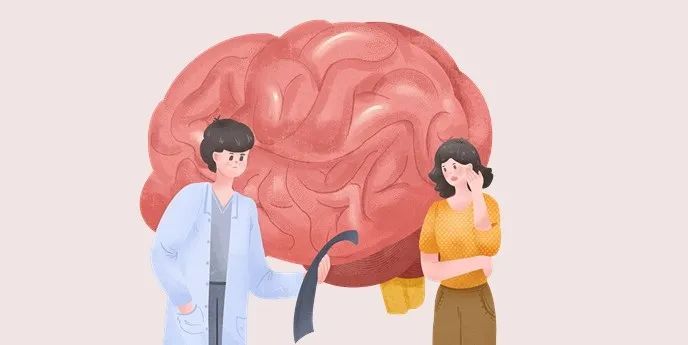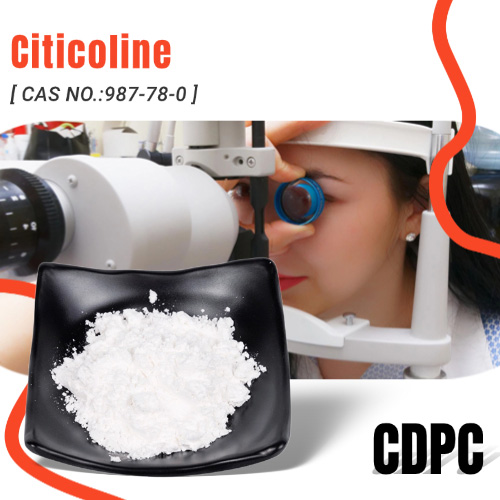Citicoline is a widely used drug in the treatment of cerebrovascular diseases. It plays an important role in promoting brain cell metabolism and improving brain function. When using citicoline, it is necessary to pay attention to the dosage and method, and long-term use is not recommended.
Drug nature and action of citicoline
1, Activators of central nervous cell energy metabolism:
The essence of citicoline is an activator of energy metabolism of central nervous cells.
It can effectively promote brain cell metabolism and improve brain function.
By activating energy metabolism processes within cells, citicoline provides the brain cells with the energy they need to maintain their normal physiological functions.
2, Protect brain cells and promote nervous system recovery:
It is often used to treat central system diseases such as cerebral infarction, cerebral atrophy and Older people dementia.
Clinical studies have shown that citicoline can effectively protect brain cells and promote the recovery of the nervous system.
It can improve the energy metabolism of brain cells, protect neuronal cells and myelin, reduce the damage of brain tissue, and promote the recovery of damaged nerve cells.
Clinical application of citicoline
1, Treatment of cerebral infarction:
Application in acute phase and convalescent phase:
Citicoline can be used to treat acute cerebral infarction and convalescent cerebral infarction.
In the acute stage, citicoline injection is commonly used in clinic, combined with basic treatment such as anticoagulation and thrombolysis.
It can effectively improve the microcirculation of brain tissue, improve the energy metabolism of brain cells, and promote the recovery of injured nerve cells while protecting the structure and function of brain cells.
In the remission stage, the clinical use of citicoline oral dose. Through long-term administration, citicoline can shrink the cerebral infarction, protect the brain function, promote the recovery of limb function, and improve the prognosis of cerebral infarction patients.
Reasons not recommended for long-term use:
Recovery from cerebral infarction is often a long process, but long-term citicoline is not recommended for patients with cerebral infarction.
In general, citicoline is used in patients with cerebral infarction during the acute and convalescent phases, usually for 3-6 months. This is because long-term oral citicoline is easy to cause adverse reactions.
Citicoline is essentially a drug that promotes brain excitement, and long-term use is easy to cause limb tremor and increase muscle tension, which is not conducive to the rehabilitation of limb function in patients with cerebral infarction.
2, Treatment of central nerve injury caused by craniocerebral trauma:
Harm of craniocerebral injury:
Craniocerebral trauma refers to head tissue injury caused by violence on the head, mainly including skull fracture and brain injury.
Craniocerebral injury can cause serious damage to brain tissue, resulting in damage to neuronal cells and myelin, brain circulation disorders, hypoxia ischemia and other dangerous symptoms.
The role of citicoline:
Citicoline one of the commonly used drugs in the treatment of craniocerebral injury.
Clinical studies have shown that the injection of citicoline can effectively protect neuronal cells and myelin sheath in patients with craniocerebral trauma, improve brain circulation, reduce the damage to brain tissue caused by hypoxia and ischemia caused by trauma, and reduce the probability of brain swelling, brain hernia and other dangerous symptoms.
3, Brain atrophy treatment:
Characteristics of brain atrophy:
Cerebral atrophy is a kind of central nervous system degeneration frequently occurring in the people older than 70, and it is a inducing factor for many diseases such as stroke and Older people dementia.
Brain atrophy can lead to a decrease in the metabolic level of brain cells, insufficient blood supply to the brain, damage to the structure and function of neuron cells, headache, dizziness, memory loss and other symptoms.
Efficacy of citicoline:
Citicoline one of the drugs commonly used in clinical brain atrophy.
Clinical studies have shown that citicoline can effectively improve the metabolic level of brain cells, promote brain blood supply, protect the integrity of neuron cell structure and function, can effectively delay brain atrophy, improve headache, dizziness, memory loss and other symptoms.
4, Treatment of chronic cerebral blood insufficiency:
The harm of chronic cerebral blood insufficiency:
Chronic cerebral blood insufficiency is one of the common diseases of the people older than 70. The clinical manifestations are headache, dizziness, etc., and even syncope in severe cases, which seriously threatens the health of the people older than 70.
Chronic cerebral insufficient blood supply can lead to cerebral tissue ischemia and hypoxia, decreased brain cell metabolism level, and impaired brain function.
The role of citicoline:
Citicoline one of the drugs used to treat chronic cerebral insufficiency.
Clinical studies have shown that citicoline can improve the blood supply to the brain, especially promote the microcirculation of brain tissue, while promoting the metabolic level of brain cells, protect brain function, and relieve headaches, dizziness and other symptoms.
Reasons why citicoline is not recommended for long-term use
1, Increased risk of adverse reactions:
Long-term oral citicoline is easy to cause adverse reactions.
This is because citicoline is essentially a drug that promotes brain excitement, and long-term use will cause excessive stimulation of the brain nervous system, resulting in limb tremor, increased muscle tension, insomnia, limb numbness, extracorporeal reaction and other adverse reactions.
2, Not conducive to limb function rehabilitation:
For patients with cerebral infarction, long-term administration of citicoline may be detrimental to the rehabilitation of limb function.
Limb tremor and increased muscle tension will affect the motor function of patients and increase the difficulty of rehabilitation training. In addition, insomnia and other adverse reactions will also affect the patient’s physical state and recovery confidence.
Scientific precautions for taking citicoline
1, Note the dosage form and usage:
Difference between injection and oral:
Citicoline is available as injection and oral. The injection mainly used in the acute stage of cerebral infarction or craniocerebral trauma, with a dose of 250-500mg each time.
Oral agents mostly used in the remission or chronic phase of central system diseases, and the conventional administration method is 200mg each time, 3 times a day.
Choose the right dosage form and use according to the condition:
When using citicoline, the appropriate dosage form and usage should selected according to the patient’s condition and treatment stage.
In the acute phase and severe conditions, the injection can preferred to quickly play the role of the drug. The remission phase and chronic phase can selected orally to maintain the efficacy of the drug.
Drugs should used in strict accordance with the doctor advice and the provisions of the drug instructions, and should not arbitrarily increased or decreased dosage or changed usage.
2, Pay attention to medication for special groups:
Pregnant and lactating women:
Pregnant and lactating women should not use citicoline, because of the lack of relevant research data, its safety is unknown. During pregnancy and lactation, citicoline should avoided to avoid adverse effects on the fetus or the baby.
Children:
Citicoline prohibited in children, again due to lack of relevant research data. Children are not yet mature in their physical development, and their ability to metabolize and excrete drugs is different from that of adults, so they need to be more cautious when using drugs.
The older people:
The people older than 70 should adjust the dose, maintain the dose as low as possible, and also adjust the drug dose according to clinical needs. The people older than 70 have decreased physical function, decreased liver and kidney function, and decreased tolerance to drugs.
Patients with sleep disorders:
Patients with sleep disorders should cautious with citicoline, because it is easy to aggravate insomnia.Patients with sleep disorders have sleep problems themselves, and the use of citicoline may further affect sleep quality.
3, Pay attention to reactions between drugs:
Avoid combination with chloroester aldehydes:
Citicoline is not suitable for use with chloral drugs, such as chloral hydrate. This class of drugs can aggravate central nervous system dysfunction, and the combination of citicoline may increase the risk of adverse reactions.
When using citicoline, the use of chloro-ester aldehydes should avoided. If you need to use other drugs at the same time, you should first consult your doctor to ensure the safety and effectiveness of the drug.
Sum up
Citicoline a drug that plays an important role in the treatment of cerebrovascular diseases, but it needs to pay attention to the dose and method when using, and it not recommended to take it for a long time.
Before using citicoline, patients should fully understand the action, usage, adverse reactions and precautions of the drug, and use the drug in strict accordance with the doctor’s recommendations.
Doctors should also pay close attention to the changes in the patient’s condition and adverse drug reactions, and adjust the treatment plan in time to ensure the safety and effective treatment of patients.




